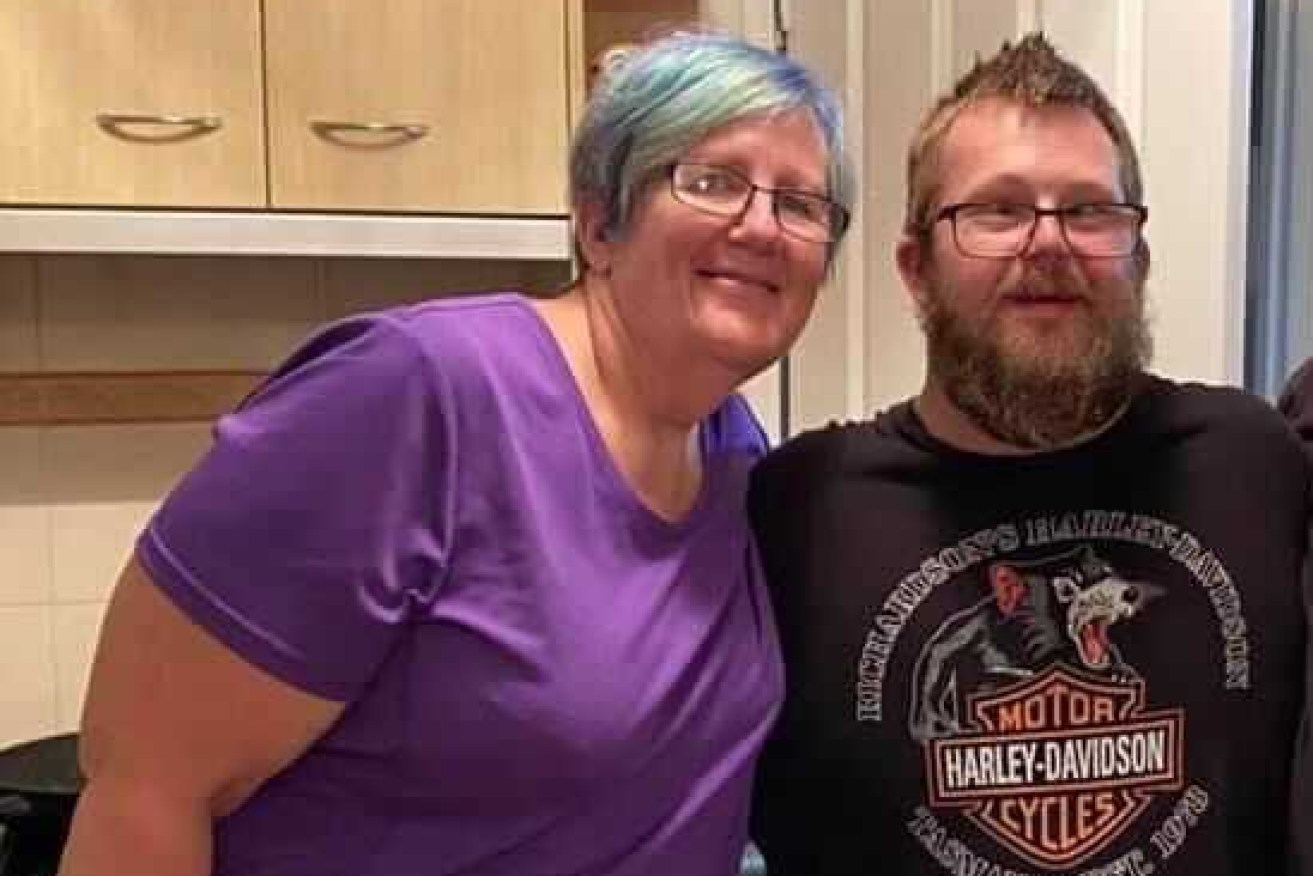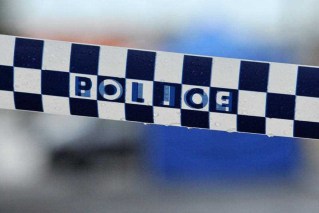The human faces of Australia’s rapid antigen test failures


Sue Grier says the RAT test shortage is affecting the quality of care for her son, William. Photo: Supplied
The Morrison government will push for nationwide exemptions to close contact rules that could ease pressure on supermarket food shortages, but other essential workers feel “abandoned”.
The failure of the federal government to shore up the supply of rapid antigen tests before the Omicron and Delta surge may not only be damaging livelihoods, but endangering lives as vulnerable people are left alone.
Meanwhile, some politicians are getting the tests delivered to their offices for free.
Queenslander Sue Grier holds serious fears that her son, William, who has Down syndrome and is autistic, would be left extremely distressed and may even need to be “tied to a bed” if he was forced to isolate alone in a hospital room after being exposed to COVID-19 from sick support workers.
Sue said William has a history of wandering away on his own so restraining him in that situation might be necessary for his own safety.
William, who requires a high level of care to live independently, has already seen five of his support workers furloughed.
If the whole team had to isolate, he would not have anyone to help him in his home.
“He would think he was deserted. I would have to bring him home – I couldn’t let him think his family had deserted him,” Ms Grier said.
“I’m only one person, only one mother. So many families are facing the same at the moment.”
Australians have been struggling to find tests at their supermarkets and pharmacies since the federal government announced a major pivot away from PCR tests and ruled out universally free RATs.
COVID-19 testing clinics are also shutting down amid testing staff shortages.
Adding to the pressure, people in New South Wales were told on Wednesday they could be fined $1000 if they failed to report to the government they had tested positive.
For as long as support workers are unable to isolate and prove they are COVID free before returning to work, people like 36-year-old William lose the support they need just to go to the toilet, dress or prepare a meal.
Ms Grier said she is also concerned disability workers were going to burn out by going “over and above the hours that a normal person should work”.
“I’ve rung lots of companies to get the COVID protocol if a support worker tests positive. A lot of them are saying they just take them to the hospital.”
Rapid antigen test shortage increasing vulnerability
Shantel, a support worker based in Brisbane, said one of her clients became suicidal after he was left alone for a week.
January’s growing coronavirus cases had resulted in an “absolute nightmare” for carers and their clients, she said.
The RAT shortage means Shantel is now the only support worker available for the mentally unwell man, so she is with him all day – meaning she is only able to go home for two hours a day to spend time with her teenager and nine-month-old baby.
“I just feel like I have so much responsibility … care doesn’t stop,” she said.
“They always need us.
“I feel like I have these huge responsibilities, that if I’m not there, then they’re not going to be OK, and that doesn’t ever end.”
Support workers feeling ‘lost’
Michael Metcalfe, founder of online disability services & support platform Kynd, said while the whole country is trying to “fight it out” for the minimal supply of RATs available, sectors such as disability need to make sure people with critical or complex daily needs are being taken care of.
“A lot of providers and sole traders simply do not have the ability to absorb upfront costs [of RATs],” Mr Metcalfe said.
With little access to RATs, he said workers are either going to work and potentially spreading the virus, or staying home unnecessarily while they try to find RATs or await PCR test results.
Tweet from @AndieHamblin
Other sectors ‘screaming’ for help
Meanwhile, workers who play a critical role in getting food to Australians are due to find out on Thursday if there will be changes to their isolation requirements.
Frank Black has been trucking for about 35 years, delivering everything from supermarket goods to machinery between Queensland, NSW, South Australia and Victoria.
He’s never seen so much pressure on truck drivers – and the stress isn’t helped by “constantly changing rules”.
He worries sick people are going to be forced back to work on sites he visits.
“[The government thinks], ‘We’re going to keep things going, and it doesn’t matter if people get infected,'” he said.
“[But] you’ve got people with families that could go to work in the morning, and they’re not sure who they’re going to encounter and whether they’re going to pick up COVID and bring it home to their families that night.”
Mr Black wants to take a RAT before each shift so he can be more certain he’s not spreading the virus across sites, but that would mean hours of time searching for a test and then paying about $15 a day.
“They [the government] tell us to get this rapid antigen testing. Number one, where do we get it? Everywhere I’ve been, they haven’t got stocks,” he said.
“Secondly, when they do have stock, who pays for them? Me.
“So if I need to have a test every day, I’m out of pocket every day to get this test.”
ACTU secretary Sally McManus said workers are having to fend for themselves, with sick workers left to hunt down “non-existent” RATs or give up on testing themselves because they can’t afford the “exorbitant” prices.
Ms McManus called on the Prime Minister to hear the concerns of essential workers directly from industry representatives.
“Australian workers are not OK at the moment,” she said this week.
“Working people need the support of their national government.
“The Prime Minister must give them the support they need to keep the country going, businesses open, the economy ticking over and, importantly, keeping us all safe.”










